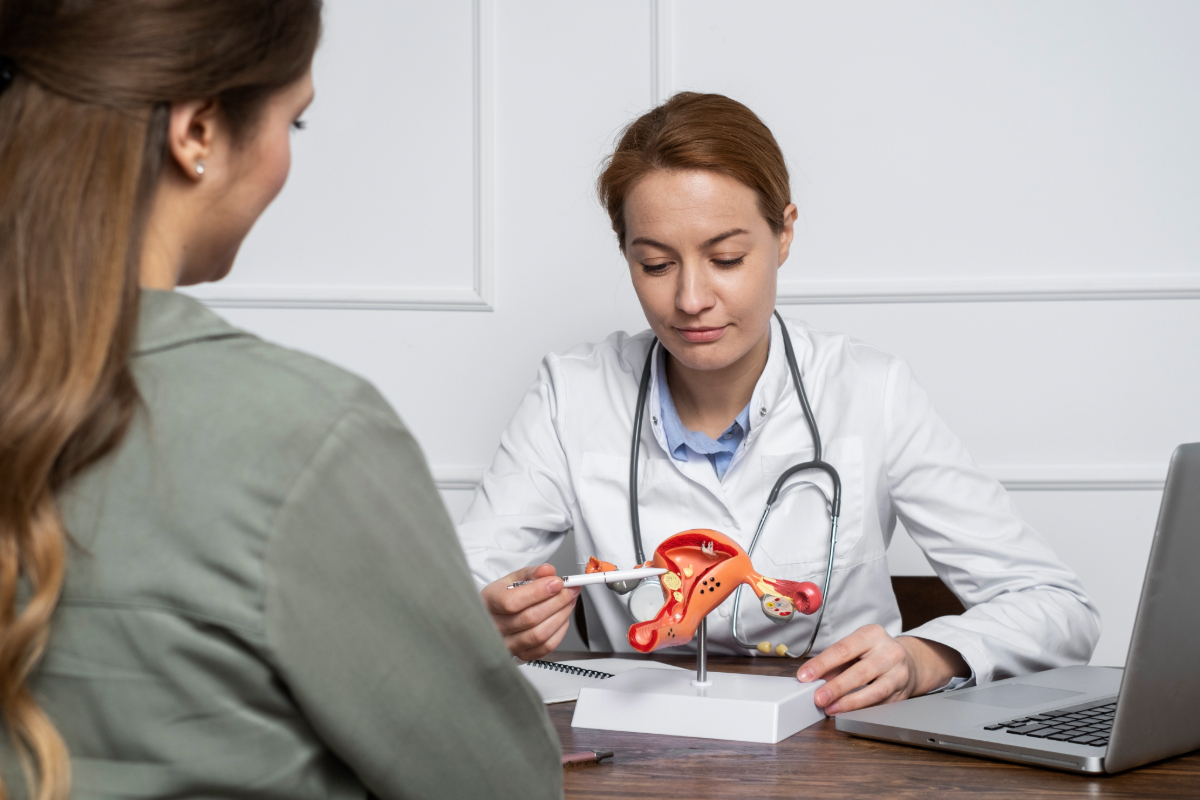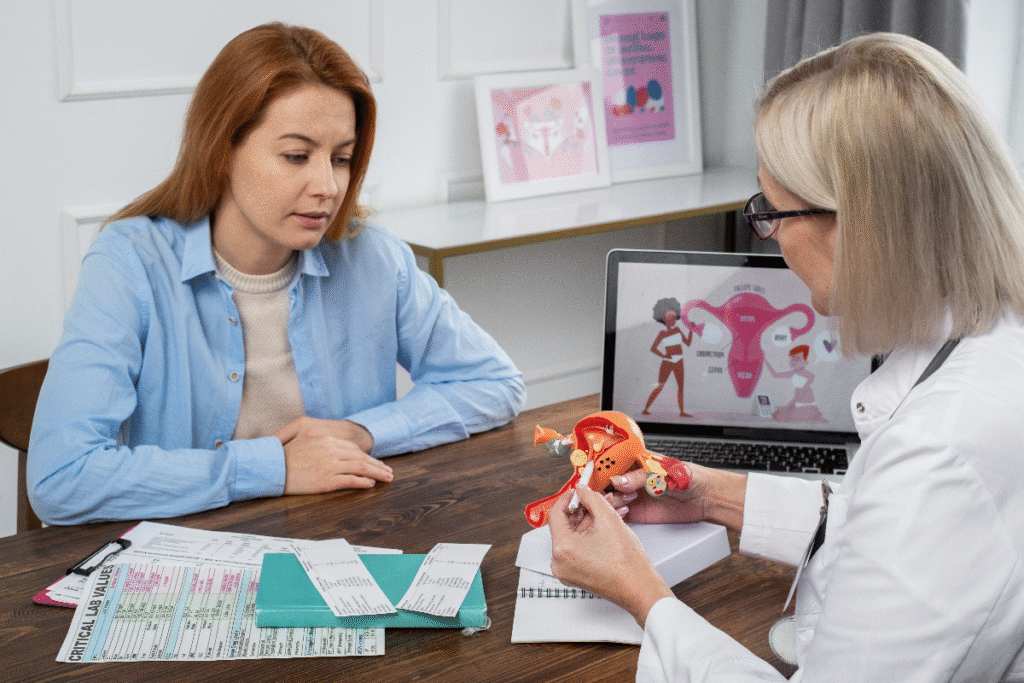Polycystic Ovary Syndrome, better known as PCOS, affects a surprising number of women, especially those in their childbearing years. Despite how common it is, many still find the condition confusing or even go years without knowing they have it.
In this post, we’ll walk through what PCOS actually is, what may cause it, the warning signs to watch for, and how doctors typically confirm a diagnosis. If you’ve been curious about the reasons behind your irregular cycles or why specific symptoms persist, this guide could offer some insight,
What Is PCOS, Really?
PCOS is a hormonal disorder that interferes with how the ovaries work. While not all women with PCOS have visible cysts, the condition often involves small, fluid-filled sacs in the ovaries and irregular ovulation.
One of the major features of PCOS is an excess of androgens—hormones that are usually higher in men. When levels are too high in women, they can cause a variety of symptoms, ranging from skin issues to missed periods. Although PCOS is often linked to fertility struggles, it’s about more than just getting pregnant. It can influence metabolism, appearance, emotional health, and long-term wellbeing.
What Triggers PCOS?
PCOS isn’t caused by just one thing. It tends to stem from a mix of genetics, hormone imbalances, and the way your body responds to insulin.

• Insulin Problems
Many women with PCOS don’t use insulin properly, which leads to higher insulin levels in the blood. This can nudge the ovaries into making more androgens, which only makes symptoms worse.
• Too Many Androgens
When androgens go up, they throw off the natural rhythm of ovulation. This is often behind missed periods, acne, and hair growth in places women don’t typically expect.
• Low-Grade Inflammation
Ongoing inflammation in the body is linked to higher androgen levels and may also contribute to issues with weight gain and insulin resistance.
• Family Ties
If PCOS runs in your family, you’re more likely to develop it yourself. It doesn’t mean you definitely will, but there’s a stronger chance if a close relative has it.
How Do You Know If You Have PCOS?

PCOS doesn’t always show up in the same way, and that’s part of why it’s tricky to spot. Some women deal with nearly all of the signs; others may have just a few.
Here are some common red flags:
● Irregular Periods
Not getting a period every month—or going months without one—is a major sign that your cycle is off track.
● Unwanted Hair
Excess hair on your face, chest, or belly (called hirsutism) often happens when androgen levels are higher than normal.
● Skin Trouble
If you’re struggling with stubborn acne that won’t go away, especially on the chin or jawline, hormones could be the cause.
● Weight Struggles
Women with PCOS often find it tough to lose weight, and the weight tends to gather around the midsection.
● Thinning Hair
Some notice hair thinning at the crown of the head—similar to male-pattern baldness.
● Trouble Getting Pregnant
Because PCOS can stop you from ovulating regularly, it’s one of the most common reasons for fertility challenges.
● Skin Changes
Darkened patches on the neck or underarms, as well as tiny skin tags, can show up when insulin levels are out of balance.
How Doctors Diagnose PCOS

There’s no single test that confirms PCOS. Instead, doctors use a combination of your symptoms, lab results, and an ultrasound to make a diagnosis. They often rely on what’s called the Rotterdam criteria, which say you need to meet two out of these three:
- No or Irregular Ovulation
- This is usually tracked by looking at your menstrual history or doing ovulation tests.
- Signs of Elevated Androgens
- This could mean visible symptoms (like acne or excess hair) or higher hormone levels in bloodwork.
- Ovaries with Multiple Small Follicles
- An ultrasound might show enlarged ovaries with many small sacs (often mistaken as cysts).
Before confirming a diagnosis, your doctor may rule out other conditions that can cause similar symptoms, like thyroid issues or elevated prolactin levels.
When Should You Check In With a Doctor?
If you’ve noticed that your periods have become unpredictable, or if you’re dealing with symptoms like acne, extra hair growth, or trouble getting pregnant, it’s a good idea to book an appointment.
Early diagnosis doesn’t just help with fertility—it can reduce the risk of developing longer-term health issues like type 2 diabetes, high blood pressure, and even endometrial cancer.
Final Thoughts: You’re Not Alone
Living with PCOS can feel frustrating, especially when symptoms affect your confidence or make it harder to reach personal goals like pregnancy or weight loss. The good news is that there are many ways to manage it—through lifestyle changes, medication, and support from healthcare providers who understand the condition.
Remember: PCOS is manageable. You don’t have to tackle it alone, and getting the right information is the first step toward feeling more in control.
FAQs
PCOS is diagnosed using the Rotterdam criteria, which include irregular periods, high androgen levels, and polycystic ovaries on ultrasound.
Irregular menstruation, acne, excess hair, and weight gain are common symptoms that prompt PCOS testing.
Doctors evaluate symptoms, hormone blood tests, and ultrasound imaging of the ovaries to confirm a PCOS diagnosis.
Yes, not all women with PCOS have visible ovarian cysts. Diagnosis depends on other criteria too.


